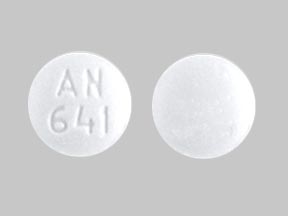
Flecainide Coupons & Savings Card – Discount Prices from $30.74
My prescription
Edit
50MG, Flecainide (180 Tablets)
Select pharmacy

CVS
$36.81
COUPON PRICE
Walmart
$30.74
COUPON PRICE
Albertsons
$35.47
COUPON PRICE
Walgreens
$37.26
COUPON PRICEFlecainide savings card
Show this card to your pharmacist
Walmart
$30.74
BIN
ID
PCN
GRP
019876
LHE2D92505
CHIPPO
LHX
Powered by
Related antiarrhythmics prescriptions
More prescriptions for ventricular arrhythmia
Related antiarrhythmics prescriptions
More prescriptions for ventricular arrhythmia
Flecainide dosage forms
Dosage Quantity Price from Per unit 50MG 1 Tablet $2.62 $2.62 50MG 30 Tablets $6.12 $0.20 50MG 50 Tablets $8.54 $0.17 50MG 60 Tablets $9.75 $0.16 50MG 100 Tablets $14.58 $0.15 50MG 180 Tablets $30.74 $0.17 100MG 1 Tablet $2.69 $2.69 100MG 50 Tablets $12.15 $0.24 100MG 60 Tablets $14.08 $0.23 100MG 90 Tablets $19.87 $0.22
| Dosage | Quantity | Price from | Per unit |
|---|---|---|---|
| 50MG | 1 Tablet | $2.62 | $2.62 |
| 50MG | 30 Tablets | $6.12 | $0.20 |
| 50MG | 50 Tablets | $8.54 | $0.17 |
| 50MG | 60 Tablets | $9.75 | $0.16 |
| 50MG | 100 Tablets | $14.58 | $0.15 |
| 50MG | 180 Tablets | $30.74 | $0.17 |
| 100MG | 1 Tablet | $2.69 | $2.69 |
| 100MG | 50 Tablets | $12.15 | $0.24 |
| 100MG | 60 Tablets | $14.08 | $0.23 |
| 100MG | 90 Tablets | $19.87 | $0.22 |
| 100MG | 100 Tablets | $21.80 | $0.22 |
| 100MG | 180 Tablets | $39.80 | $0.22 |
| 150MG | 180 Tablets | $48.67 | $0.27 |
| 150MG | 60 Tablets | $22.14 | $0.37 |
| 150MG | 100 Tablets | $38.73 | $0.39 |
Flecainide Warnings
Flecainide is a medication used to treat certain types of irregular heartbeats. However, it comes with specific safety considerations and warnings that must be understood to ensure its safe use. Below are important points regarding its use, potential risks, and precautions:
Potential Risks: While beneficial for irregular heartbeats, flecainide can sometimes cause new, serious arrhythmias. It is particularly risky after a recent heart attack, as shown in the Cardiac Arrhythmia Suppression Trial (CAST), which highlighted increased mortality risks in such cases.
Monitoring Requirements: Due to the potential for proarrhythmic effects (new abnormal heart rhythms), flecainide should be initiated in a hospital setting where close monitoring is possible. This is especially important for individuals with sustained ventricular arrhythmia. Regular lab tests and EKGs are crucial to prevent severe complications.
Heart Failure Caution: Those with heart failure must use flecainide under the stringent supervision of a heart specialist. The medication can exacerbate heart failure symptoms, necessitating careful adjustment of other heart medications.
Delayed Heart Rhythms: Flecainide can sometimes lead to slowed heart rhythms. Patients should be vigilant for symptoms such as a slow pulse, chest pain, or faintness. Immediate medical attention is required if these occur.
Drug Interactions: Flecainide can interact with numerous medications, including digoxin, which may alter the effects of either drug. To prevent harmful interactions, it's vital to inform healthcare providers of all medications being taken.
Special Population Guidance: Those with persistent atrial fibrillation/flutter should not use flecainide unless advised by a healthcare professional. Patients with heart block or sick sinus syndrome should also be cautious.
In cases of overdose or severe side effects, seek emergency medical help immediately. Always consult with your healthcare provider to discuss the benefits and risks of flecainide for your specific condition and ensure safe usage.
Flecainide Side Effects
Common side effects:
- Dizziness
- Vision changes
- Headaches
- Nausea
- Tiredness
- Feelings of weakness
Less common but important to monitor:
- Shortness of breath
- Palpitations
- Chest pain
- Tremors
- Constipation
- Abdominal pain
- Fluid retention causing swelling
- Lack of energy
- Vomiting
- Diarrhea
- Poor appetite
- Rashes
- Double vision
- Tingling or numbness
- Flushed skin
- Sweating
- Sleepiness
- Ringing in the ears
- Anxiety
- Insomnia
- Depression
Serious side effects:
- Significant changes in heart rhythm
- Symptoms indicating worsening heart failure
- Severe allergic reaction
Flecainide Interactions
Interactions with high risk of serious adverse effects and should be avoided:
- Bepridil
- Cisapride
- Dronedarone
- Levomethadyl
- Mesoridazine
- Pimozide
- Piperaquine
- Ritonavir
- Saquinavir
- Sparfloxacin
- Terfenadine
- Thioridazine
- Tipranavir
- Vernakalant
- Ziprasidone
Interactions with moderate risk that may require dose adjustment, closer monitoring, or timing changes:
- Amiodarone
- Dofetilide
- Procainamide
- Quinidine
- Sotalol
- Erythromycin
- Cimetidine
- Fluconazole
- Phenytoin
- Phenobarbital
- Cimetidine
- Digoxin
- Paroxetine
- Propranolol
- Verapamil
